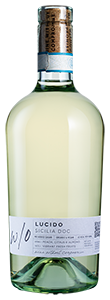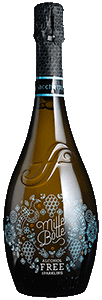Filter by
- Whistle-clean and citrusy-fresh Sauvignon Blanc from four-time Chilean Winery of the Year£10.99 per bottle
- New Zealand Sauvignon bursting with vibrant lime and guava, from the first to see the sun each day£7.99 per bottle
- Classic, aromatic Sancerre with intense, flinty, citrus elegance from this small family domaine£21.00 per bottle
- A crisp, characterful, southern French white with a lemon zestiness from winemaker Laurent Guillot£6.99 per bottle
- Our crowd-pleasing Montepulciano d’Abruzzo, bursting with spicy cherry and plum flavour. Silky too£10.99 per bottle
- Lively Vinho Verde full of fresh fruit flavours, a brisk lemony crispness and a charming spritz£9.99 per bottle
- Crisp, green apple, mineral and ocean-fresh Muscadet Cru from a fourth-generation family estate£13.99 per bottle
- Gorgeously rich Douro red from a port master! Velvet smooth and full of black fruit and spice£15.99 per bottle
- Juicy grapey aromas with a dash of blossom and red apple freshness in this delicious, low-alc fizz£5.99 per bottle
- A delicious Sicilian white wine made without compromise. Crisp and fresh with ripe peach and citrus£13.99 per bottle
- For the most intensely citrusy, grassy-fresh Loire Sauvignon Blanc, look to this fine Pouilly-Fumé£17.99 per bottle
- A delicious, new, alcohol-free sparkling wine, with crisp apple, juicy pear and zesty citrus notes£6.99 per bottle
- £8.99 per bottle
- Rich Côtes du Rhône red, with warm, ripe, velvety black fruit and herbal hints from a family estate£9.99 per bottle
- Pretty, delicate berry rosé. All you'd expect from Jeff Carrel – from deliciousness to great flavour£12.99 per bottle
- As breezy and fresh as Kew Gardens in springtime, this is an appetising white using Carricante£12.99 per bottle
- Zesty Sauvignon from an award-winning producer in the ocean-cooled vineyards of Chile's Colchagua£13.99 per bottle
- Wine without compromise from grape to glass, a Sicilian fizz with enticing fruits and creamy bubbles£11.99 per bottleSAVE £3.00
- £17.99 per bottle
- Deep cherry fruit with subtle oak in this fine Chianti Riserva from Paolo Masi's Tuscan estate£15.99 per bottle
- Impressively rich, elegant and satin-smooth, a Malbec masterclass from very beautiful Patagonia£17.99 per bottle
- Smooth, velvety Merlot - a style that Chile excels with – supple ripe fruit with gentle spice£13.99 per bottle
- Fresh, fruity Malbec from the high slopes of Argentina's San Juan. Silky with floral and spice hints£9.99 per bottle
- Embrace the essence of Italian effervescence – delicious fruit notes in this sparkling gem£3.99 per bottle
Wine FAQs
What is vegan wine?
You’d be forgiven for thinking that all wine must be vegan, seeing that wine is made from naturally fermented grape juice. However, it’s the winemaking process that means some wines may not be suitable for people following a plant-based lifestyle.
Most wine requires clarifying before being bottled. This process removes tiny particles and impurities that are natural by-products of fermentation, leaving crystal-clear wine to enjoy. The only way to do this is to use fining agents, which bind with these particles in larger clumps so they can be filtered away. Traditional fining agents include animal-based products such as egg whites or gelatin.
Vegan wine uses alternative fining agents that are plant or mineral-based to achieve the same result. This makes vegan wines safe to consume for anyone who wishes to avoid animal-based products.
It’s not always a lifestyle choice. When customers started asking about our vegan wines, we sought more information from our family of winemakers around the world. It turns out that many traditional animal-related elements used in fining wine were no longer being used anyway as winemaking techniques modernise.
Some winemakers do not clarify their wines at all – essentially leaving them unfiltered – which makes them vegan-friendly by default.
What makes a wine vegan?
Wine is considered vegan if it has been made without using animal products. This refers to the use of fining agents, which work to remove unwanted particles created during fermentation that can give the wine a cloudy, unappealing appearance. Traditional fining agents are often made from:
- Albumen – more commonly known as egg whites.
- Gelatin – from the bones, skin or connective tissue of cows and pigs.
- Isinglass – the dried swim bladders of fish.
- Casein – a substance found in milk.
These filtering agents are used in small quantities and are removed from the wine once they’ve done their job. However, some trace amounts might remain and – as they aren’t additives – there’s no requirement for them to be listed on the bottle label.
If you’re looking for a wine made entirely without animal products, opt for a wine marked as ‘vegan’. These wines use synthetic or plant-based products as fining agents or forgo the clarification process entirely.
What fining agents are used in vegan wine?
Winemakers can use many different types of vegan fining agents to clarify and stabilise their wines. These include:
- Kaolinite – a type of clay that’s found across the globe, including the UK.
- Bentonite – a clay mainly found in the US.
- Activated carbon – sourced from coconut shells, wood, bamboo or coal.
- Plant casein – a protein extracted from peas, soy and other legumes.
- Silica gel – made from silicon dioxide and commonly found in minerals such as sand and quartz.
- PPVP (polyvinylpolypyrrolidone) – a synthetic polymer that’s made in a lab.
Does vegan wine taste different?
Made with the same grapes and in an almost identical way, a vegan wine will taste no different to its non-vegan counterpart. The fining agents used to clarify and stabilise the wine don’t impart any flavour, so you won’t compromise on taste by choosing a vegan option.
You might have a slightly smaller selection to choose from, but many wineries now offer vegan versions of their most popular bottles.
How can you tell if a wine is vegan?
Many wine brands recognise the demand for vegan wines and are taking extra steps to cater to vegan needs. Many wineries label their wines as being vegan-friendly.
It is also a common label on websites and restaurant wine lists. For example, check out our product pages and you’ll see vegan or vegetarian listed in the ‘More Information’ section.
The Vegan Society has a label that is sometimes displayed on wine bottles to verify that the product doesn’t contain animal ingredients or derivatives.
Even if a wine isn’t labelled ‘vegan’, it doesn’t necessarily mean animal products were used. Many winemakers now use vegan-friendly options as a matter of practice but are not explicitly stating it.
If you’re unsure whether a wine is vegan, you can check online or contact the winery directly.



























